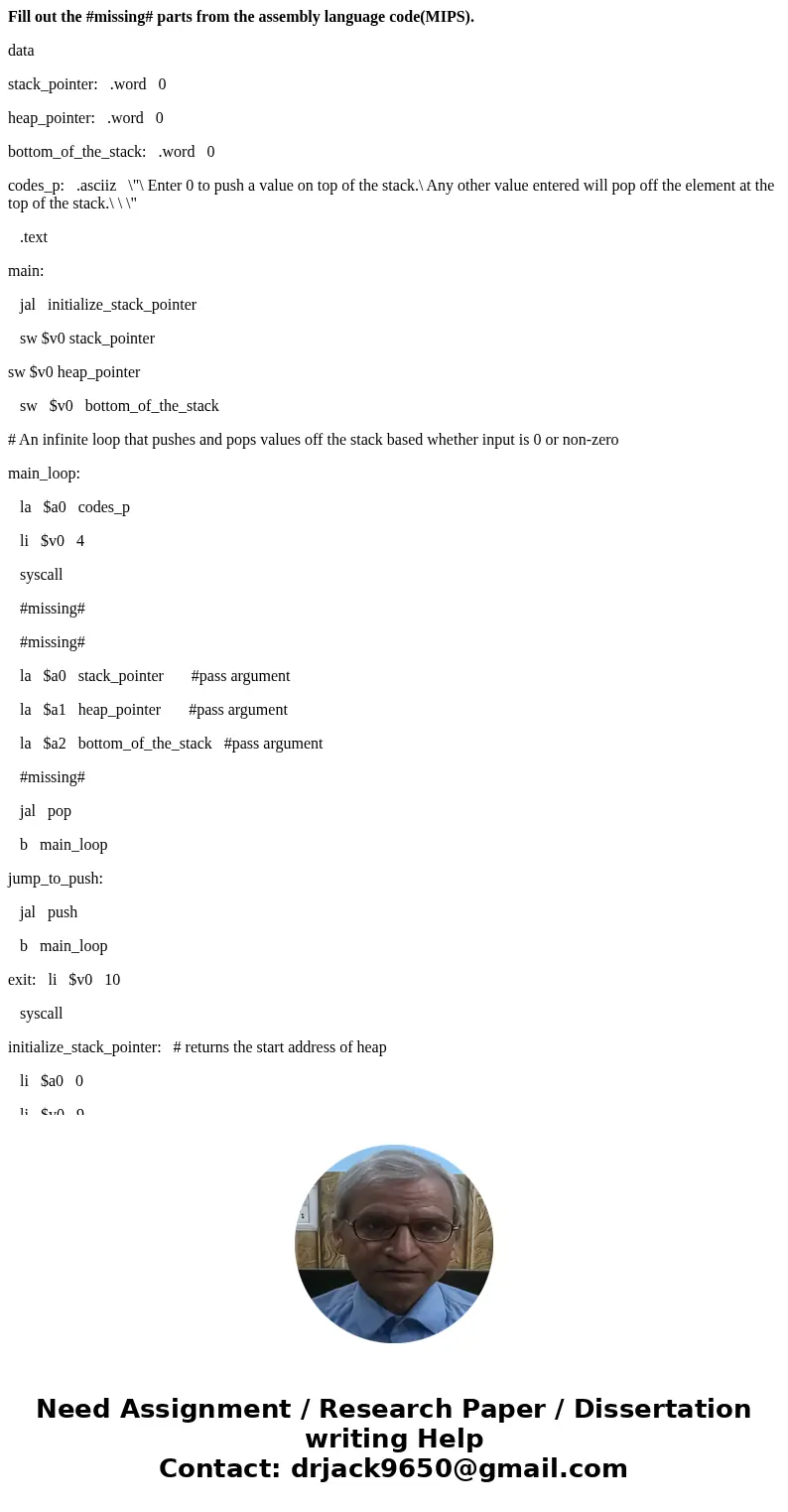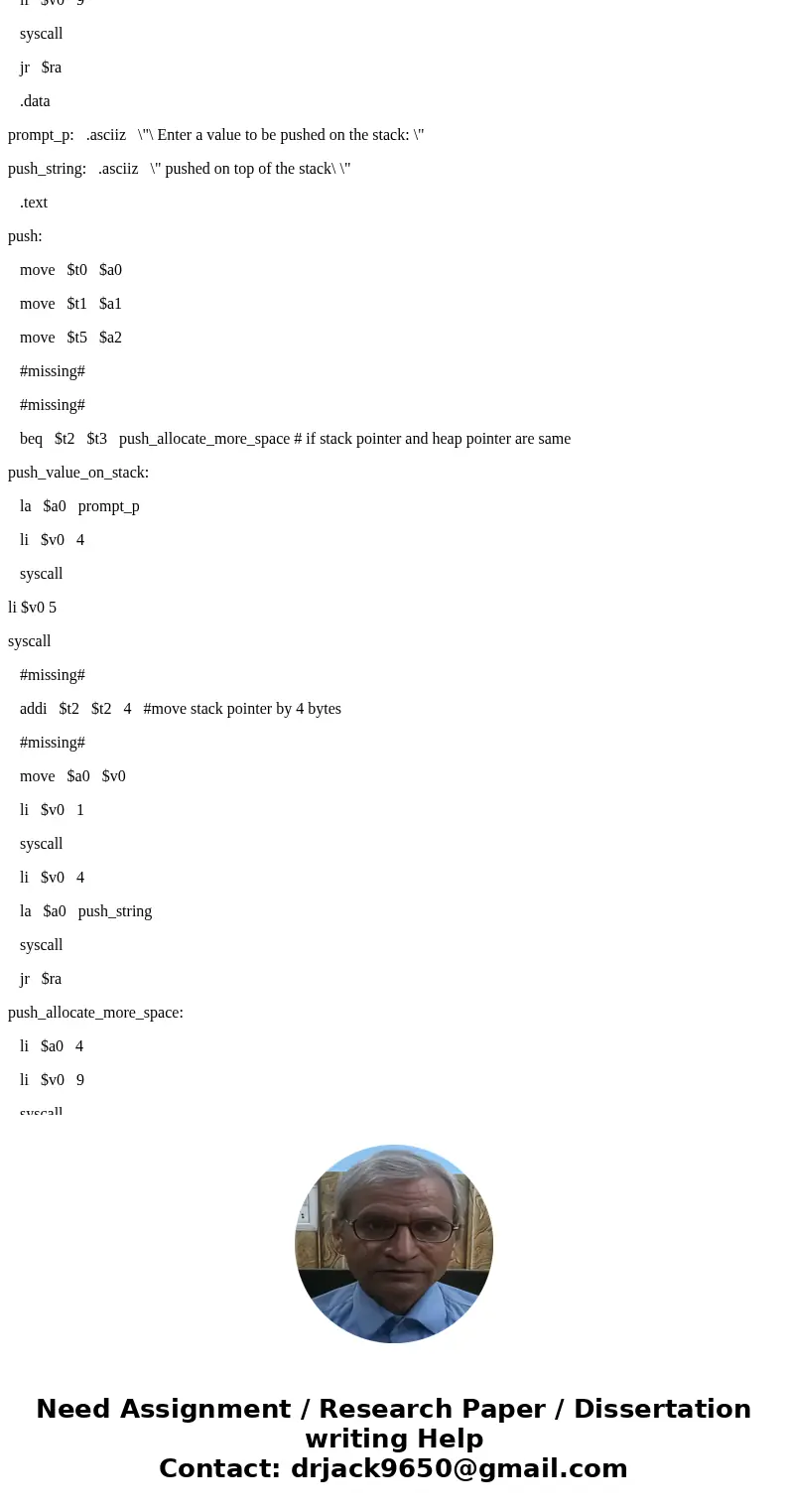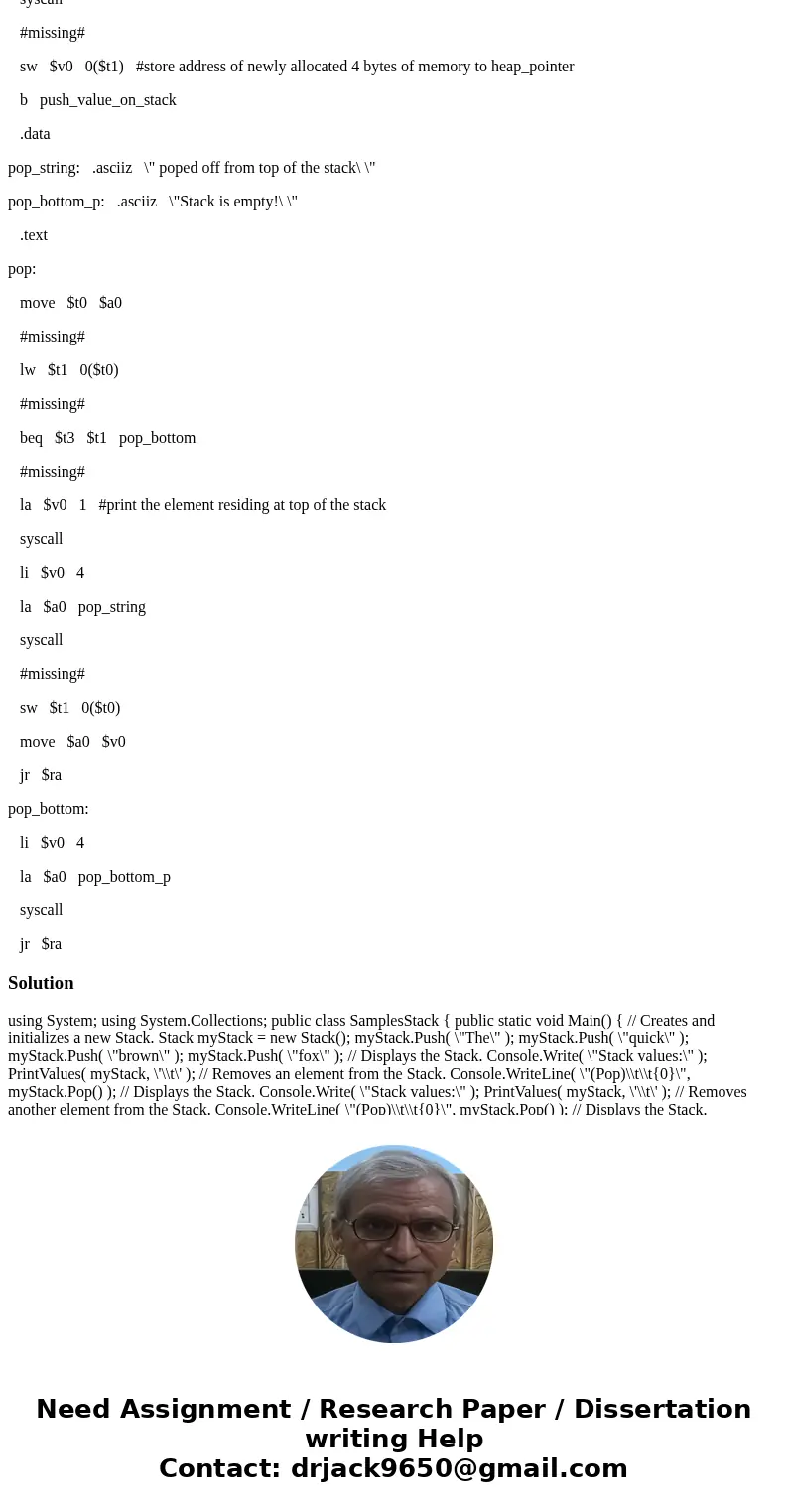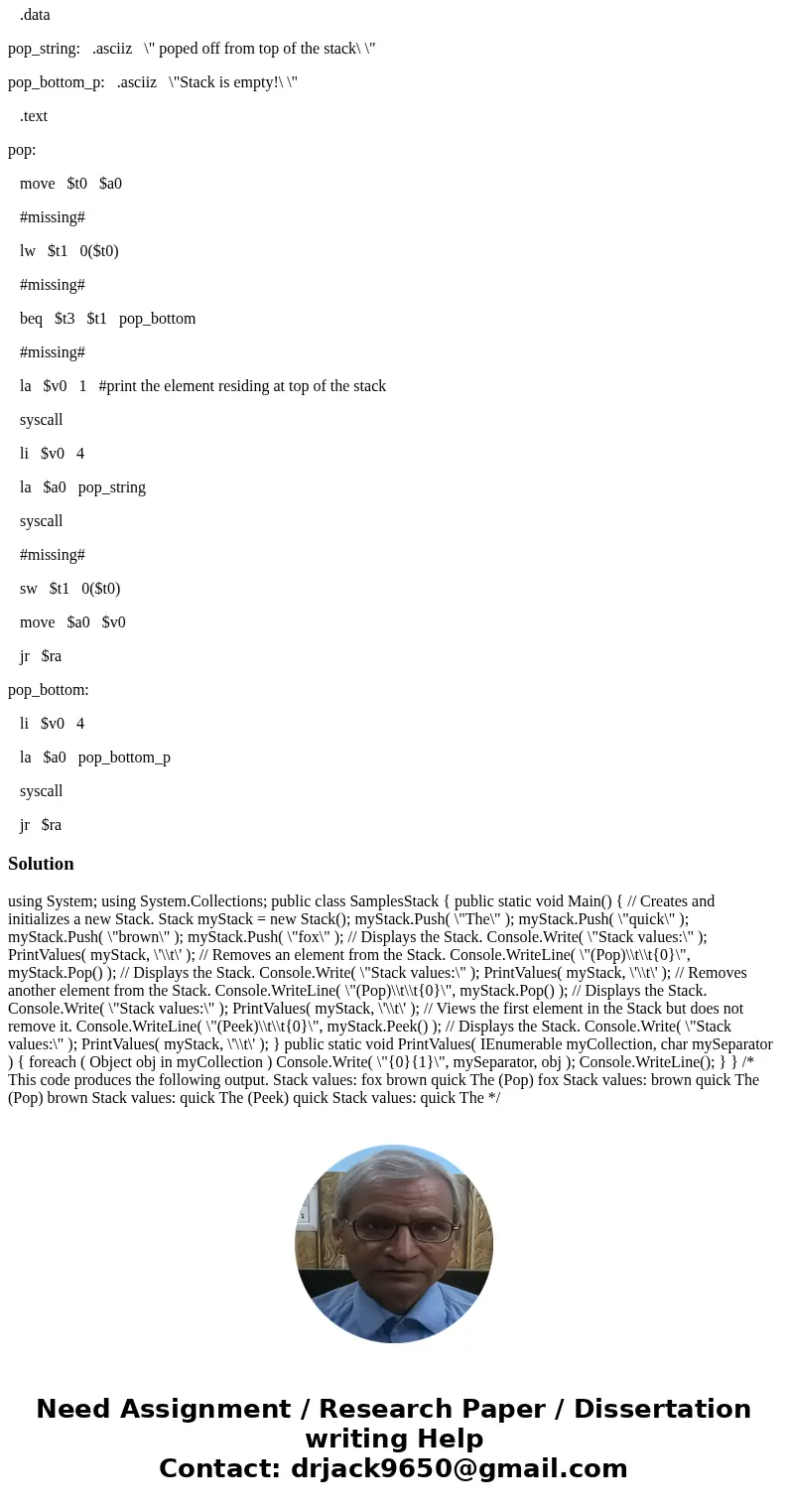Fill out the missing parts from the assembly language codeMI
Fill out the #missing# parts from the assembly language code(MIPS).
data
stack_pointer: .word 0
heap_pointer: .word 0
bottom_of_the_stack: .word 0
codes_p: .asciiz \"\ Enter 0 to push a value on top of the stack.\ Any other value entered will pop off the element at the top of the stack.\ \ \"
.text
main:
jal initialize_stack_pointer
sw $v0 stack_pointer
sw $v0 heap_pointer
sw $v0 bottom_of_the_stack
# An infinite loop that pushes and pops values off the stack based whether input is 0 or non-zero
main_loop:
la $a0 codes_p
li $v0 4
syscall
#missing#
#missing#
la $a0 stack_pointer #pass argument
la $a1 heap_pointer #pass argument
la $a2 bottom_of_the_stack #pass argument
#missing#
jal pop
b main_loop
jump_to_push:
jal push
b main_loop
exit: li $v0 10
syscall
initialize_stack_pointer: # returns the start address of heap
li $a0 0
li $v0 9
syscall
jr $ra
.data
prompt_p: .asciiz \"\ Enter a value to be pushed on the stack: \"
push_string: .asciiz \" pushed on top of the stack\ \"
.text
push:
move $t0 $a0
move $t1 $a1
move $t5 $a2
#missing#
#missing#
beq $t2 $t3 push_allocate_more_space # if stack pointer and heap pointer are same
push_value_on_stack:
la $a0 prompt_p
li $v0 4
syscall
li $v0 5
syscall
#missing#
addi $t2 $t2 4 #move stack pointer by 4 bytes
#missing#
move $a0 $v0
li $v0 1
syscall
li $v0 4
la $a0 push_string
syscall
jr $ra
push_allocate_more_space:
li $a0 4
li $v0 9
syscall
#missing#
sw $v0 0($t1) #store address of newly allocated 4 bytes of memory to heap_pointer
b push_value_on_stack
.data
pop_string: .asciiz \" poped off from top of the stack\ \"
pop_bottom_p: .asciiz \"Stack is empty!\ \"
.text
pop:
move $t0 $a0
#missing#
lw $t1 0($t0)
#missing#
beq $t3 $t1 pop_bottom
#missing#
la $v0 1 #print the element residing at top of the stack
syscall
li $v0 4
la $a0 pop_string
syscall
#missing#
sw $t1 0($t0)
move $a0 $v0
jr $ra
pop_bottom:
li $v0 4
la $a0 pop_bottom_p
syscall
jr $ra
Solution
using System; using System.Collections; public class SamplesStack { public static void Main() { // Creates and initializes a new Stack. Stack myStack = new Stack(); myStack.Push( \"The\" ); myStack.Push( \"quick\" ); myStack.Push( \"brown\" ); myStack.Push( \"fox\" ); // Displays the Stack. Console.Write( \"Stack values:\" ); PrintValues( myStack, \'\\t\' ); // Removes an element from the Stack. Console.WriteLine( \"(Pop)\\t\\t{0}\", myStack.Pop() ); // Displays the Stack. Console.Write( \"Stack values:\" ); PrintValues( myStack, \'\\t\' ); // Removes another element from the Stack. Console.WriteLine( \"(Pop)\\t\\t{0}\", myStack.Pop() ); // Displays the Stack. Console.Write( \"Stack values:\" ); PrintValues( myStack, \'\\t\' ); // Views the first element in the Stack but does not remove it. Console.WriteLine( \"(Peek)\\t\\t{0}\", myStack.Peek() ); // Displays the Stack. Console.Write( \"Stack values:\" ); PrintValues( myStack, \'\\t\' ); } public static void PrintValues( IEnumerable myCollection, char mySeparator ) { foreach ( Object obj in myCollection ) Console.Write( \"{0}{1}\", mySeparator, obj ); Console.WriteLine(); } } /* This code produces the following output. Stack values: fox brown quick The (Pop) fox Stack values: brown quick The (Pop) brown Stack values: quick The (Peek) quick Stack values: quick The */



 Homework Sourse
Homework Sourse